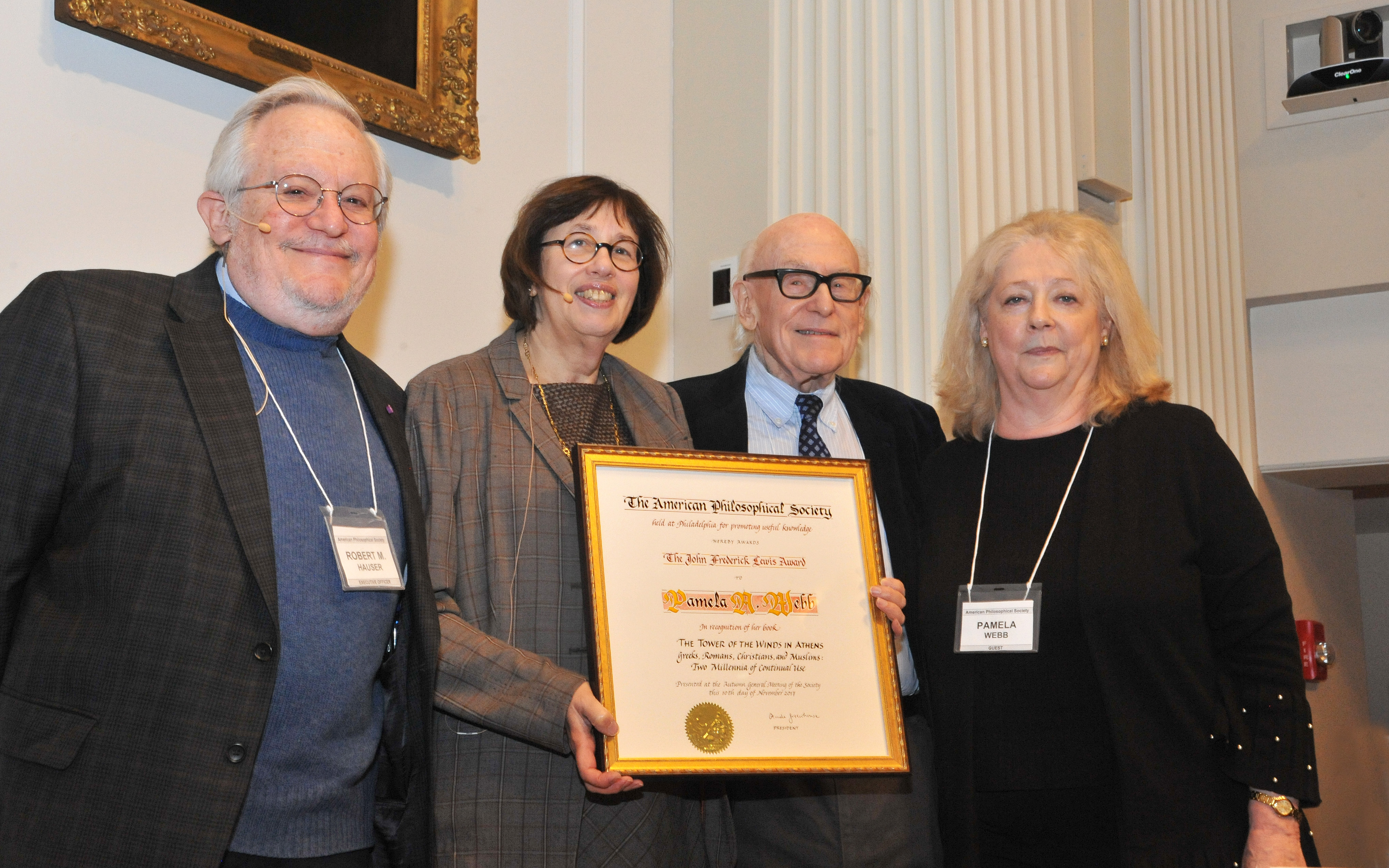2016 John Frederick Lewis Award

Pamela Webb
The American Philosophical Society is pleased to present the 2016 John Frederick Lewis Award to Pamela Webb in recognition of her book The Tower of the Winds in Athens – Greeks, Romans, Christians, and Muslims: Two Millennia of Continual Use.
While patronage and pagan cult are important topics for classical scholars, Pamela Webb’s goals are to create greater awareness of and familiarity with the Tower of the Winds among scholars who concentrate on post-classical Athens and to make available in a single volume analyses of each of the building’s periods of occupation.
Investigations of classical monuments in the city generally have placed their greatest emphasis on the religious and civic structures on the Akropolis and in the Agora, including the two most important buildings that continued in use from antiquity through the Ottoman periods – the Parthenon and the Erechtheion. It is Webb’s belief that the Tower of the Winds, which stood below these monuments at the foot of the hill, should assume a more prominent place in investigations of Athens’ classical (and later) history.
A great deal is known about Greek temples and stoas and theaters and other types of religious and civic buildings. Little physical evidence remains, however, of architecture and implements that served the academic and scientific spheres of ancient life. The Academy is gone, as is the Lyceum, the libraries at Pergamon and Alexandria (and its great lighthouse), Archimedes’ orreries, and most other such impressive creations from the Hellenistic Period. But the Tower of the Winds stands, the tangible product of one of the many great mathematical and engineering minds of the time. Because this building survives, an extensive set of accurate vertical sundials has come down to us. The physical structure, supported by literary sources, supplies evidence of a figured weather vane that worked in coordination with the largest display of representations of the winds from antiquity. The water-run device from the interior of this monument may be long gone and its specific form resists identification, but remnants of the system that powered it provide material proof of its size and complexity. This great Octagon is a unique connection to the past.
That the Tower was important to the intellectual life of Hellenistic and Roman Athens cannot be denied. Defining its role in Late Antiquity is far more problematic. How it functioned as a classical building consecrated for Christian use certainly raises intriguing questions, however, for evidence suggests it may have served as a martyrium for the Apostle Philip.
Pamela Webb is a Classical Archaeologist specializing in Greek and Roman architecture and sculpture. She has an M.A. and Ph.D. in Classical and Near Eastern Archaeology from Bryn Mawr College and is the author of Hellenistic Architectural Sculpture (1996). She has taught at Swarthmore College, Rosemont College, Villanova University and, for a number of years, was a Visiting Associate Professor at Bryn Mawr College where she is currently a Research Associate. Her present book is part of a larger project (Hellenistic Architectural Sculpture, Vol. 2) for which she has received grants from the National Endowment for the Humanities and the American Philosophical Society.
In 1935 the Society established the John Frederick Lewis Award with funds donated by his widow. The award recognizes the best book or monograph published by the Society in a given year. Members of the selection committee were Glen W. Bowersock (chair), Professor Emeritus of Ancient History, Institute for Advanced Study; Julia Haig Gaisser, Professor Emeritus of Latin, Eugenia Chase Guild Professor Emeritus in the Humanities, Bryn Mawr College; and Noel M. Swerdlow, Professor Emeritus of Astronomy and Astrophysics and of History, University of Chicago.
